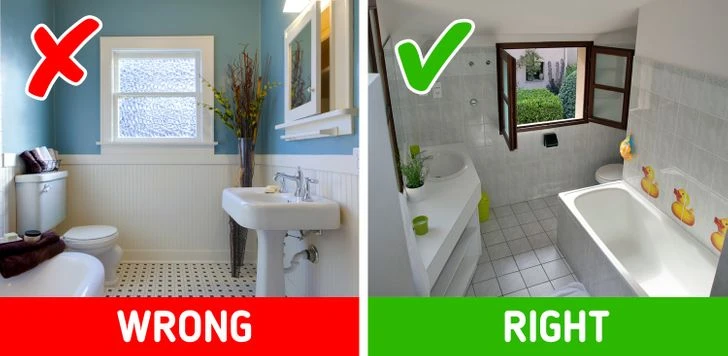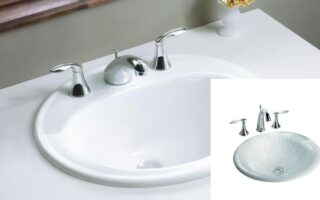Bathrooms are essential spaces in our homes, but they can sometimes become sources of unpleasant odors. Smells in the bathroom can be both embarrassing and uncomfortable, affecting the overall ambiance of your home. Whether it’s the lingering scent of mildew or the unmistakable odor of sewage, these smells can be persistent and challenging to eliminate.
Maintaining a fresh-smelling bathroom is crucial not only for comfort but also for hygiene. A clean and pleasant-smelling bathroom can significantly enhance your daily routine, making it a more enjoyable space for relaxation and self-care. In this article, we’ll explore the various causes of bathroom odors and provide practical solutions to keep your bathroom smelling fresh and inviting.
Understanding the Causes of Bathroom Smells

Common Sources of Odors
Bathrooms are prone to a variety of odors due to their function and frequent use. Common sources of bathroom smells include:
- Toilets: The most obvious source, toilets can emit odors if not cleaned regularly or if there are plumbing issues.
- Drains: Hair, soap scum, and other debris can accumulate in drains, leading to unpleasant smells.
- Mildew and Mold: Bathrooms are often damp, making them ideal breeding grounds for mildew and mold, which can produce musty odors.
Understanding these sources is the first step in tackling bathroom odors effectively.
Factors Contributing to Odors
Several factors can exacerbate bathroom smells, making them more noticeable and persistent:
- Humidity: Bathrooms are naturally humid environments, which can intensify odors and promote the growth of mold and mildew.
- Poor Ventilation: Without proper airflow, odors can linger and become more concentrated.
- Plumbing Issues: Leaks or blockages in the plumbing system can lead to sewage smells.
Addressing these factors can help reduce the intensity and frequency of bathroom odors.
Identifying Specific Smells
Different odors can indicate specific issues within your bathroom:
- Sewage Smell: Often a sign of plumbing problems, such as a dry P-trap or a blocked vent pipe.
- Musty Smell: Typically caused by mold or mildew growth due to excess moisture.
- Chemical Smell: May result from cleaning products or air fresheners that are too strong or not properly ventilated.
By identifying the type of odor, you can better target the underlying cause and implement the appropriate solution.
Preventive Measures to Avoid Bathroom Odors

Regular Cleaning Routines
One of the most effective ways to prevent bathroom odors is through regular cleaning. This involves:
- Disinfecting Surfaces: Use appropriate cleaning products to disinfect toilets, sinks, and countertops.
- Cleaning Drains: Regularly clear drains of hair and debris to prevent buildup.
- Scrubbing Tiles and Grout: Mold and mildew can grow on tiles and grout, so it’s important to scrub these areas regularly.
Recommended cleaning products include bleach-based cleaners for disinfecting and vinegar or baking soda for natural cleaning solutions.
Proper Ventilation
Ventilation plays a crucial role in controlling bathroom odors. Here are some tips to improve airflow:
- Use Exhaust Fans: Install or regularly use an exhaust fan to remove moisture and odors.
- Open Windows: If possible, open windows to allow fresh air to circulate.
- Install Ventilation Systems: Consider installing a more robust ventilation system if your bathroom lacks natural airflow.
Proper ventilation helps reduce humidity and prevents odors from becoming trapped.
Managing Humidity Levels
Keeping humidity in check is essential for preventing mold and mildew growth. Here are some strategies:
- Use Dehumidifiers: A dehumidifier can help maintain optimal humidity levels in your bathroom.
- Moisture-Absorbing Products: Products like silica gel or moisture absorbers can help reduce dampness.
- Fix Leaks: Address any leaks promptly to prevent excess moisture buildup.
By managing humidity, you can create an environment less conducive to odor-causing mold and mildew.
Effective Solutions for Eliminating Existing Odors

Natural Remedies
Natural remedies can be effective in eliminating bathroom odors without the use of harsh chemicals. Some popular options include:
- Baking Soda: Place an open box of baking soda in the bathroom to absorb odors.
- Vinegar: Use vinegar to clean surfaces and neutralize odors.
- Essential Oils: Add a few drops of essential oils to a diffuser or cotton ball for a pleasant scent.
These natural solutions are not only effective but also environmentally friendly.
Commercial Products
There are numerous commercial products designed to tackle bathroom odors. These include:
- Air Fresheners: Available in various scents, air fresheners can mask odors temporarily.
- Odor Eliminators: Products specifically designed to neutralize odors rather than just cover them up.
- Cleaning Sprays: Formulated to clean and deodorize surfaces effectively.
When choosing commercial products, consider those that are safe for your family and the environment.
DIY Solutions
For those who prefer a hands-on approach, DIY solutions can be both fun and effective. Here are some recipes:
- Homemade Air Freshener: Mix water, vinegar, and a few drops of essential oil in a spray bottle.
- Odor Absorber: Combine baking soda and essential oils in a small jar with holes in the lid.
These DIY solutions are cost-effective and customizable to your scent preferences.
Long-term Strategies for a Fresh Bathroom
Regular Maintenance Checks
Regular maintenance is key to preventing odors from developing. This includes:
- Checking Plumbing: Regularly inspect plumbing for leaks or blockages.
- Inspecting Fixtures: Ensure that all fixtures are functioning properly and are free from buildup.
By staying on top of maintenance, you can prevent small issues from becoming major problems.
Seasonal Deep Cleaning
In addition to regular cleaning, a seasonal deep clean can help maintain a fresh bathroom. This involves:
- Cleaning Behind Fixtures: Move and clean behind toilets and sinks to remove hidden dirt and grime.
- Washing Shower Curtains and Rugs: These items can harbor odors and should be washed regularly.
A deep clean can refresh your bathroom and eliminate lingering odors.
Incorporating Plants
Adding air-purifying plants to your bathroom can improve air quality and add a natural fragrance. Some suitable plants include:
- Aloe Vera: Known for its air-purifying properties and ability to thrive in humid environments.
- Spider Plant: Easy to care for and effective at removing pollutants.
- Peace Lily: Helps reduce mold spores and adds a touch of elegance.
Plants not only enhance the aesthetic of your bathroom but also contribute to a fresher atmosphere.
FAQs About Bathroom Smells
Why does my bathroom smell even after cleaning?
Even after cleaning, bathrooms can smell due to hidden mold, plumbing issues, or inadequate ventilation. Ensure thorough cleaning and check for underlying problems.
How can I prevent smells in a small bathroom?
In small bathrooms, focus on maximizing ventilation, using moisture absorbers, and keeping surfaces clean to prevent odors.
What are the best air fresheners for bathrooms?
The best air fresheners are those that neutralize odors rather than mask them. Look for products with natural ingredients and pleasant scents.
Conclusion
Addressing bathroom odors is essential for maintaining a comfortable and hygienic home environment. By understanding the causes of odors and implementing preventive measures, you can keep your bathroom smelling fresh and inviting. We encourage you to try the strategies discussed in this article and share your personal tips or experiences in the comments. Let’s work together to create a pleasant bathroom experience for everyone!




